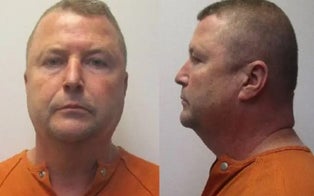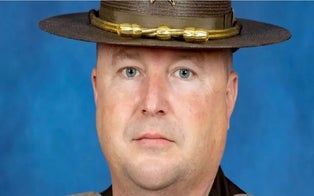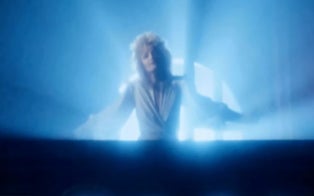It was another tough day for the defense in the Conrad Murray trial as another medical expert told the court that Murray’s care of Michael Jackson was “gross negligence.” INSIDE EDITION reports from the courthouse.
Dr. Conrad Murray's care of Michael Jackson is blasted by yet another medical expert.
Dr. Nader Kamanger said Murray acted with "gross negligence" when he treated Jackson's insomnia with the powerful anesthetic Propofol.
Dr. Kamanger told the court, "Ultimately, this cocktail was a recipe for disaster in a patient."
Dr. Kamanger continued, "The use of Propofol for just inducing sleep, for treatment of insomnia, is in and of itself incomprehensible."
HLN's Jane Velez-Mitchell told INSIDE EDITION, "The prosecution witnesses are just hitting it out of the park with some very clear cut condemnations of Dr. Murray. The defense should just say, 'Okay, thank you. Move along' because the longer they try to squeeze something out of them and it doesn't work, the worse it is for the defense."
So just how powerful is Propofol? INSIDE EDITION's Les Trent watched a procedure with a patient take place at the Capital Health System Fuld Campus in Trenton, New Jersey, in 2009, shortly after Michael Jackson's death.
"He stopped breathing now?" asked Trent.
"Yeah, he stopped breathing," said the anesthesiologist.
The hospital patient receiving Propofol had just stopped breathing and flatlined, but everything was under control.
Trent said, "The danger of doing this outside a medical setting is that, if that happens to you outside a medical setting, you stop breathing, you die."
"Yeah, of course," replied the anesthesiologist.
Patient Joe Hailey was about to have an upper endoscopy, an exploratory exam that requires him to be put out.
The anesthesiologist's drug of choice was Propofol, sometimes known as Diprivan. We now know Jackson called it his "milk" because of its cloudy appearance.
The shot went into the patient. His eyes fluttered and he was out cold.
"You have to constantly monitor them. You cannot even have your eyes off them not more than five, ten seconds," explained the anesthesiologist.
The moment the patient stopped breathing the anesthesiologist pointed out, "You can see it's going flat. It means he stopped breathing."
The team performed a simple procedure to get his lungs going again. After eight minutes, it was time to bring the patient around. He was groggy and remembered nothing.
"Does it feel like you've been out for a long time?" asked Trent.
"Yeah," replied Hailey.
It was a dramatic display of the power of Propofol.
Now the critical question for the jury: Was Dr. Conrad Murray guilty of gross negligence in giving it to Michael Jackson?






